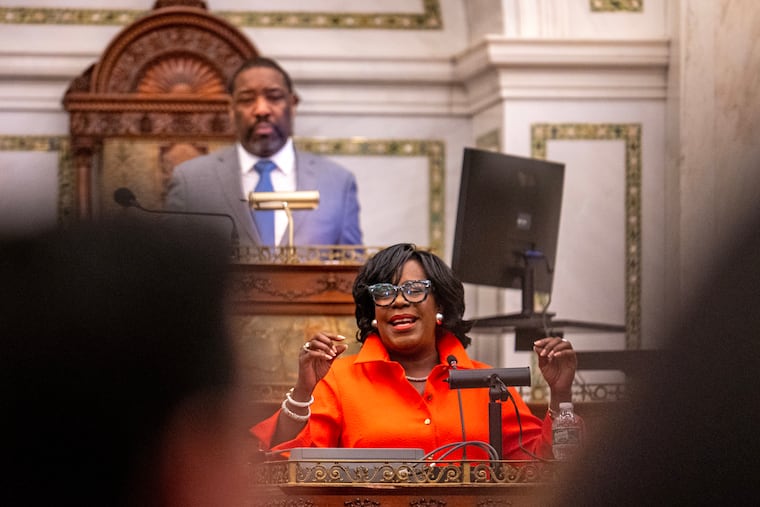City budget talks between Mayor Cherelle Parker and Council focus on housing, taxes, and other key issues. Here’s what you need to know.
Philadelphia Mayor Cherelle L. Parker and the Philadelphia City Council are engaged in intricate negotiations regarding the city’s upcoming budget, which had appeared to be progressing smoothly until recent developments involving former President Donald Trump. The situation escalated when the U.S. Department of Homeland Security included Philadelphia on a list of “sanctuary” jurisdictions that could potentially face substantial federal funding cuts due to their noncompliance with federal immigration enforcement.
The implications of these developments for Philadelphia remain uncertain. While Trump’s administration has signaled a potential retraction of federal funds, the feasibility of such cuts being enforced is questionable. Legal challenges could arise, which may impede the administration’s ability to implement these funding reductions. As of now, city officials have opted for a cautious stance, choosing to monitor the situation as it unfolds.
In the previous fiscal year, Philadelphia received approximately .2 billion in federal funds, and the loss of such revenue could be disastrous, particularly for public health programs and various social services that rely heavily on this financial support. Councilmember Nicolas O’Rourke underscored the city’s commitment to its values, suggesting that retaliatory funding cuts from the federal government should compel local leaders to reevaluate how the city funds essential services.
As budget negotiations continue, Parker had initially proposed a .7 billion general fund budget, with City Council reviewing her proposed tax and spending framework over the past two months. The critical phase of these negotiations is set for Wednesday, during which key committee meetings could lead to modifications in Parker’s proposals. If negotiations go well, amendments could pave the way for the budget’s final approval ahead of the June 12 deadline, coinciding with the council’s summer recess.
Notably, projections indicate a healthy fund balance of around 2 million, stemming from higher-than-expected tax revenues and reduced agency expenditures. This surplus provides city officials with additional financial flexibility, potentially easing the negotiation process as they address individual councilmembers’ funding priorities.
In terms of tax policy, discussions are ongoing regarding reductions in the city’s business and wage tax rates, although the extent of these reductions remains to be determined. Council President Kenyatta Johnson is advocating for significant cuts, specifically targeting the business income and receipts tax. Parker supports tax reductions but has adopted a more measured approach, proposing more modest cuts compared to the ambitious reforms advocated by Johnson.
In addition to budget negotiations, Parker’s H.O.M.E. initiative, which includes requests for seven council bills, appears to be garnering support, particularly on propositions that facilitate city funding through bond issuance for essential housing initiatives.
While the Trump administration’s threat of funding cuts looms over the negotiations, it has yet to manifest in any concrete impact. City officials remain vigilant and prepared to assess developments should the federal government take definitive action to withdraw funds, while continuing their efforts to secure a balanced and responsive budget for the city.
Media News Source







